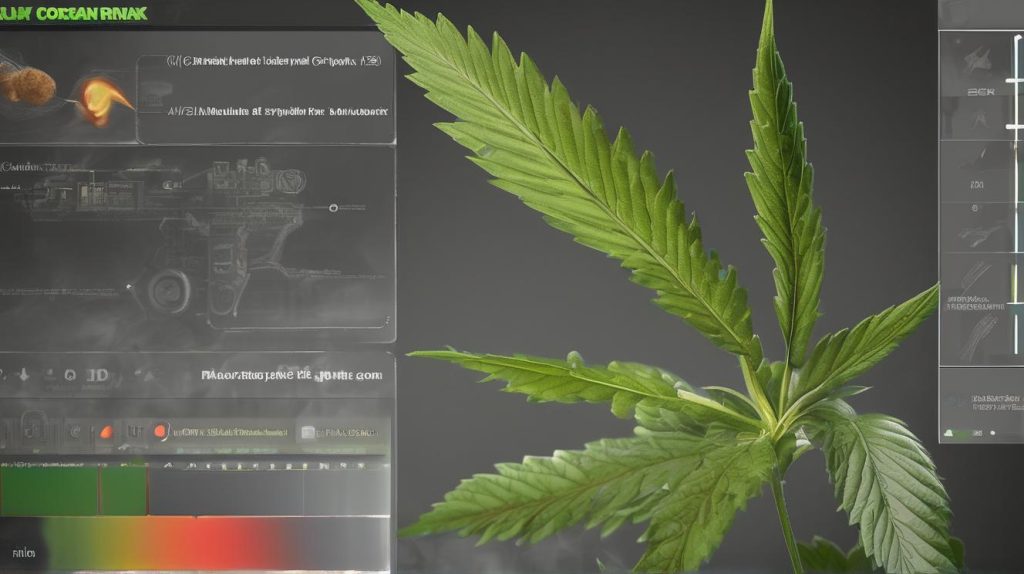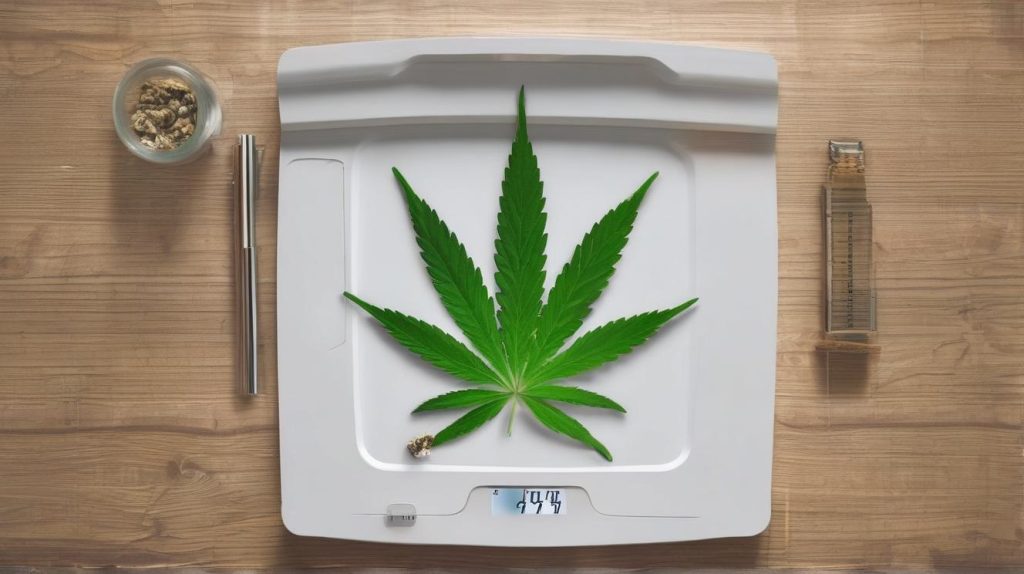Hey there! So, let’s talk about something that’s been on my mind lately: the journey of lung recovery after quitting weed. It’s a topic close to my heart because, well, let’s just say I’ve had my fair share of experiences with cannabis. I used to smoke quite a bit, thinking it was just a harmless habit. But as I learned more about the effects of cannabis on lung health and overall well-being, I decided to make a change. Quitting wasn’t easy, but I knew it was the right choice for my physical and mental health. Now, as I reflect on my journey, I want to share some insights about how our lungs can bounce back after quitting cannabis. So, join me as we explore the path to lung recovery and the benefits it brings along the way.
What toxins are found in cannabis smoke?
Hey everyone, let’s dive into the world of lung recovery after parting ways with weed. It’s been quite a journey for me, and I’ve learned a lot along the way. One thing that stood out to me was understanding the toxins present in cannabis smoke and how they impact lung health. You see, just like tobacco smoke, cannabis smoke contains a variety of harmful chemicals that can take a toll on our lungs over time. From tar to carbon monoxide and various carcinogens, these toxins can contribute to respiratory issues and even increase the risk of lung diseases. So, as I embarked on my journey to quit smoking weed, learning about these chemicals and their effects on lung health was a crucial part of my decision-making process. Let’s explore further to understand the importance of prioritizing lung recovery after quitting weed.
How does marijuana affect lung health?
Quitting weed has been a game-changer for me, especially when it comes to my lung health. I used to wonder about the impact of marijuana on my lungs, especially after learning about the harmful chemicals found in cannabis smoke. The American Lung Association highlights the risks associated with inhaling cannabis smoke, similar to tobacco smoke. Understanding these effects motivated me to prioritize my lung recovery journey after quitting weed.
What signs should I watch for to know if cannabis is harming my lungs?
Since quitting marijuana, I’ve been more attentive to signs indicating any damage to my lungs. From shortness of breath to persistent coughing, these symptoms can’t be ignored. It’s reassuring to know that many states in America have legalized marijuana, but I also realized the importance of prioritizing my lung health. The American Lung Association’s HelpLine has been a valuable resource, providing guidance and support throughout my journey. Being proactive about my lung recovery after quitting weed has been empowering, and I’m committed to maintaining optimal lung health.
Is exposure to secondhand cannabis smoke harmful to lung health?
Since I embarked on my journey of lung recovery after quitting weed, I’ve often wondered about the potential effects of secondhand cannabis smoke on lung health. It’s crucial to acknowledge that exposure to secondhand smoke, whether from cannabis or tobacco, can have detrimental effects on our lungs. Research has shown that secondhand cannabis smoke contains many of the same harmful chemicals found in tobacco smoke, posing risks to both smokers and non-smokers alike. Protecting lung health means being mindful of the environments we expose ourselves to and advocating for smoke-free spaces. As I continue my journey toward optimal lung health, I prioritize avoiding exposure to secondhand cannabis smoke and promoting awareness of its potential risks to others.
Can the use of medical marijuana have adverse effects on lung health?
Exploring the impact of medical marijuana on lung health has been a significant concern on my journey toward lung recovery post-quitting weed. I’ve delved into research and sought insights to understand the potential effects it may have. While medical marijuana is often hailed for its therapeutic benefits, there’s ongoing debate about its impact on lung health. Some studies suggest that smoking medical marijuana can lead to similar respiratory issues as smoking tobacco, while others indicate potential benefits when consumed through alternative methods like vaporization or edibles.
Is vaping cannabis harmful to lung health?
Exploring the potential impact of vaping cannabis on lung recovery post-quitting weed has been crucial for my journey toward better respiratory health. I’ve researched extensively to understand the effects of vaping on lung function and recovery. While vaping cannabis is often perceived as a safer alternative to smoking, there’s growing concern about its potential harm to lung health. Some studies suggest that vaping cannabis can still expose the lungs to harmful chemicals and irritants, albeit in lower concentrations compared to smoking. As I focus on recovering from the effects of quitting marijuana, I remain cautious about the potential risks associated with vaping cannabis, prioritizing my lung health above all else.
Is it possible for the lungs to heal after cannabis use?
As someone who has navigated the journey of quitting weed and focusing on lung recovery, I’ve delved deep into understanding whether our lungs can truly bounce back from the effects of cannabis use. After quitting marijuana, I embarked on a mission to optimize my lung health and regain vitality. Through research and personal experience, I’ve learned that our lungs have an incredible capacity for recovery, even after prolonged cannabis use. With dedication to a healthy lifestyle, including regular exercise, proper nutrition, and avoiding exposure to secondhand cannabis and tobacco smoke, I’ve witnessed significant improvements in my lung function over time. It’s empowering to know that with commitment and care, our lungs can indeed recover from the impact of cannabis use, paving the way for better respiratory health and overall well-being.
Strategies for quitting cannabis use
Quitting cannabis was a transformative journey for me, one that required determination, support, and self-reflection. As I embarked on this path, I discovered effective strategies to help me break free from the grip of cannabis use and prioritize my lung health. Firstly, I sought support from organizations like the Caregiver Network for timely assistance and guidance. Their resources and community connections provided invaluable support during my journey. Additionally, I implemented personalized coping mechanisms to manage cravings and withdrawal symptoms, such as mindfulness practices and engaging in hobbies. Creating a supportive environment by distancing myself from triggers and surrounding myself with understanding individuals also played a crucial role in my success. By staying committed to my goal and seeking support when needed, I found the strength to overcome cannabis use and prioritize my lung health.
My Journey to Lung Recovery After Quitting Weed
Quitting weed was a pivotal moment in my life, one that sparked a journey of self-discovery and prioritizing my lung health. As I navigated through the challenges of withdrawal and cravings, I found solace in knowing that my decision was fueled by a desire for a healthier future. Along the way, I encountered various symptoms and effects of marijuana use on my lungs, each serving as a reminder of the importance of my journey toward recovery.
Increased Coughing and Mucus Production
One of the first changes I noticed after quitting weed was a significant decrease in coughing and mucus production. Smoking cannabis had become a regular habit for me, and it took a toll on my respiratory system. The act of inhaling smoke from burning marijuana irritated my airways, leading to frequent coughing fits and excessive mucus production. However, as I abstained from smoking, I began to notice a gradual improvement in my lung function. The coughing fits became less frequent, and my airways felt clearer than ever before.
The Positive Impact of Stopping Marijuana Use
I’ve experienced remarkable improvements in my overall health since I decided to quit using marijuana. Ever since I stopped, I’ve noticed significant changes in my lung health and overall well-being. My lung capacity has increased, and I no longer experience the persistent coughing and mucus production that often accompanies my marijuana use. Quitting marijuana has allowed me to take control of my health and live a more vibrant life. If you’re considering quitting marijuana, know that the benefits extend far beyond just lung health. It’s a decision that can positively impact every aspect of your life.
Short Conclusion:
Quitting weed is a crucial step towards improving respiratory health. With support from resources like the Network for Timely Education and the American Lung Association, you can take charge of your lung health and prevent future complications.



